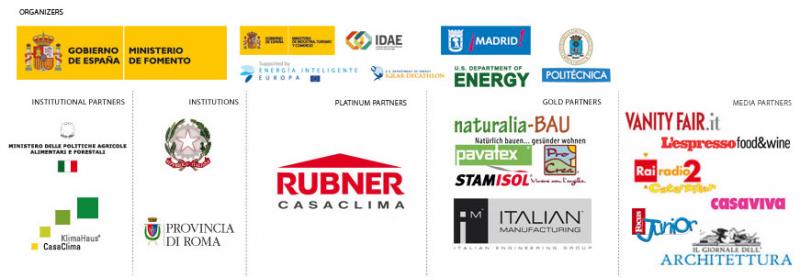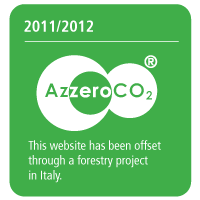 |
 |
 |
||
       |
||||
THE MEDITERRANEAN HOUSE OF THE FUTURE? A REALITY ALSO MADE POSSIBLE BY THE WEB
A bioclimatic and sustainable house that produces energy and consumes at least 5 times less than a traditional one: it will be realized also thanks to the web, the social media and the Italians’ desire to shape an entirely innovative project. MED in Italy, the Italian photovoltaic house that will take part in September at the Solar Decathlon Europe 2012 - the Olympics of green architecture created by the United States Department of Energy- launches a fund raising initiative through the crowdfunding web portal Eppela (www.eppela.com), a social organism developed in the United States, made popular by the Barack Obama presidential campaign.
MED in Italy is the project that a team composed of professors and students from the University of Rome TRE, in partnership with the Industrial Design Laboratory of La Sapienza University, the Casaclima Master Research Team of the Libera University of Bolzano and Fraunhofer Italy, are taking to European Solar Decathlon 2012. This is where Italy will compete against 19 other innovative projects coming from 13 other countries (Brazil, China, Denmark, Egypt, France, Germany, Great Britain, Hungary, Japan, Norway, Portugal, Romania and Spain).
In addition to the official partners’ support, MED in Italy will be fabricated also thanks to crowdfunding, a verified method that guaranteed the successful outcome of the Obama presidential campaign. The Eppela portal promotes projects of common interest, inviting and sensitizing people through the web for support. It’s the same tool already adopted for a number of initiatives on the Kickstarter website in the United States.
The Eppela campaign to support the MED in Italy Project represents a unique opportunity to personally contribute to build the Mediterranean green house and to endure the sustainability issue in Italy, as well as the development of renewable energy.
MED in Italy is inspired by the Mediterranean housing tradition with the objective to optimize the temperature range to shelter its dwellers from excessive heat.
The external patio, where fruit and vegetables are grown, as well as the photovoltaic cover are intended to mitigate the temperature range inside the building and protect against overheating. The layering of the walls, containing sand in aluminum tubes and coatings of natural isolation made with wooden wool, also ensure thermal balance.
The design project for the Mediterranean House was developed by the Roma TRE University, the Sapienza University, the Bolzano Libera University and Fraunhofer Italia.
The project has received patronage and support from the Italian Ministry of Agriculture, Food, and Forests, from the Casaclima Agency, as well as from the President of the Italian Republic.
Technical and professional sponsors are: Rubner Haus, Solar Decathlon Europe, Agenzia Casaclima, Italian Manufacturing, Naturalia Bau- Pavatex – Stamisol, Frost Italy, SAIE - SAIE Energia, Derbigum, Eurotherm, Valcucine – demode, Energytech, Catalano Ceramiche, Electrolux, Bright Materials, DGA, Schneider Electric, CASPUR, Ecoplan, CiAl, Calceviva.
Media partner - RAI Radio2 Caterpillar, L’Espresso Food & Wine, Vanity Fair, Casaviva, Focus Junior, Il Giornale dell'Architettura.
Fur further information
Silverback - Greening the Communication
Paola Richard - p.richard@silverback.it – mobile 366 1645501
| Attachment | Size |
|---|---|
| 840 KB |







